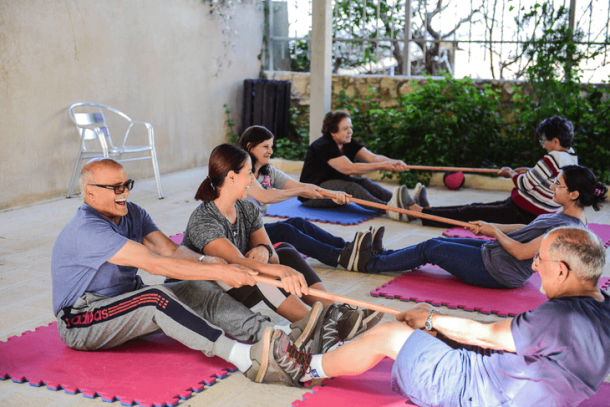
Ramallah Municipality
Communities move towards more equitable metropolitan spaces
A community is a fundamental building block in any metropolis. It is where people create their social networks, access basic healthcare, learn and experience culture. Public space within a community, including community centres, parks, playgrounds, and neighbourhood spaces in urban areas, all play a vital role. Local governments all over the world are looking for solutions so that people have all the necessary services at their disposal to live in a metropolitan area, with the facilities and the quality of life of a smaller city. These solutions must involve public participation in order to create policies that actually respond to the needs of the community.
“The pandemic has not only raised new problems, but it has highlighted some of the contradictions inherent to urban development. The solution must come from putting people at the centre, and it is time to focus on city inhabitants, while thinking in terms of sustainability”, stated Octavi de la Varga while kicking-off the second webinar organised by the Metropolis Learning Hub Chengdu, “Seeking Better Quality of Community Life: A Park City Approach”, held on 16 December.
The first webinar, held in May, focused on nature-based solutions through the "park city” initiative, while the aim of this session was to highlight the role that community space plays in metropolitan life. The meeting brought together a number of community representatives from Chengdu, as well as from Amman and Ramallah, to discuss the matter.
One of the most notable aspects of these communities is that they have grassroots governance, a concept that covers joint contribution, joint governance, and benefit sharing. It combines the socialisation of public space with a market-oriented operation to ensure communities reach their full potential. This is the case of the Yulin East Road Community, which that has undergone a renewal to address the lack of public space and outdated and obsolete facilities that did not respond to the needs of the 18,000 permanent residents. Today, thanks to a public consultation and citizen participation process that was carried out to reform Yulin, it is now a more inclusive community as it has integrated the needs of 250 people in the community who suffer from functional diversity.
In Amman, a city that is growing fast due to recent immigration and refugee arrivals, the authorities have decided to improve the lives of inhabitants by creating a network of green spaces through their “GI” initiative to provide residents of the most vulnerable communities with high-quality public space. Green spaces bring social benefits by acting as meeting points, but they also provide physical and mental benefits by motivating people to engage in some form of physical activity. Additionally, citizens are being taught how to take care of these green spaces through capacity building, so the inhabitants have a sense of ownership of the space where they live.

Ramallah is committed to leaving no one behind. As such, it has created what is called the Forum of Expertise, an Acting Ageing Initiative. The space was created with the aim of offering people over 50 years old from neighbouring towns or refugee camps with a place to exchange and develop knowledge through training activities delivered by volunteer staff. The activities offered are mainly focused on people’s well-being, whether through physical exercise, leisure or social activities. Ramallah is a city marked by military occupation, and volunteering is part of the national struggle against it.
More information about the session here.

